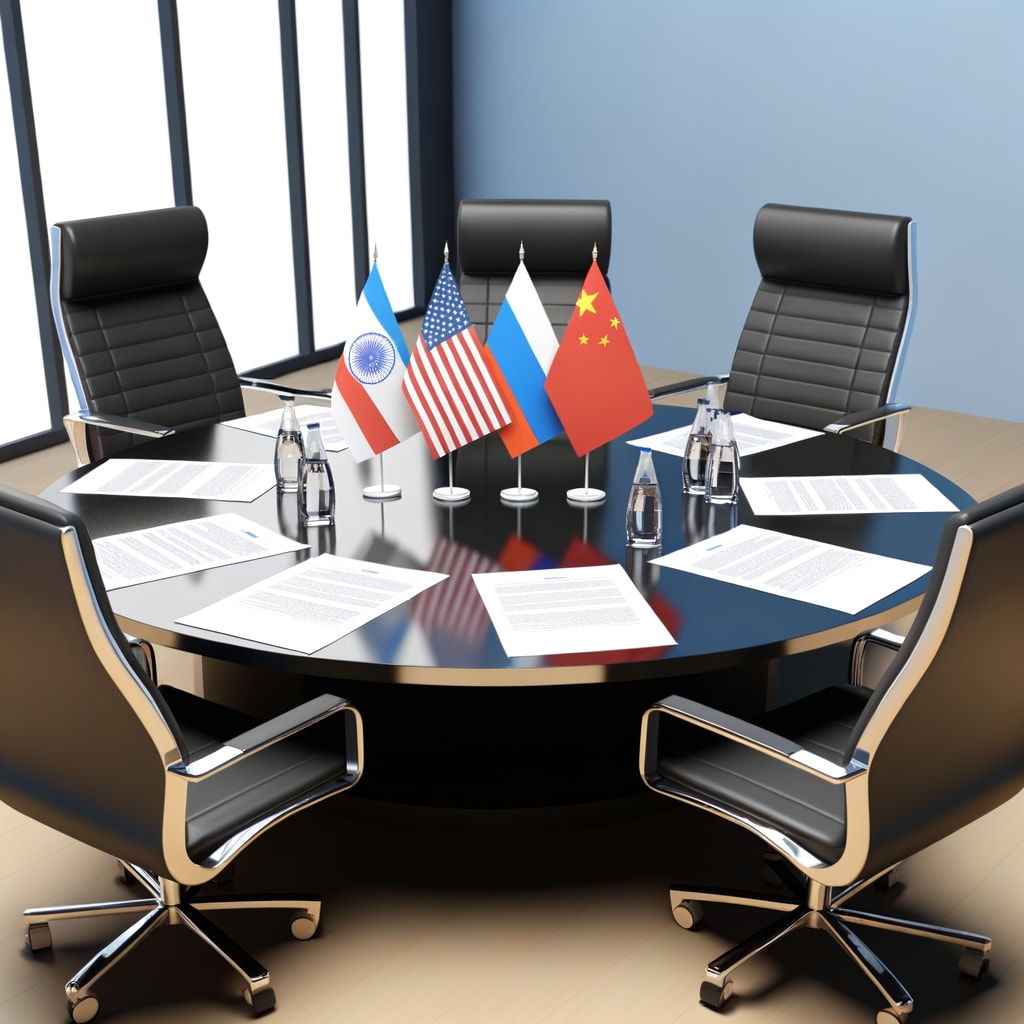Trump, Xi Jinping Discuss Ukraine Crisis Amid High Tensions
In a high-stakes meeting on the sidelines of the APEC summit in South Korea, U.S. President Donald Trump and Chinese President Xi Jinping discussed the ongoing war in Ukraine and the potential role China could play in mediating the conflict. While Trump expressed confidence in China's ability to assist, Europeans have expressed disappointment over the lack of clear progress.
Background and Context
The war between Russia and Ukraine, which has been ongoing for over three years, has drawn international attention and concern. Amid escalating tensions, President Trump has called on countries, particularly China and India, which are key importers of Russian oil, to reduce their purchases. This move is part of a larger strategy to pressure Russia to cease its aggression towards Ukraine.
Key Developments
During their meeting in Busan, South Korea, Trump stated that he and Xi had agreed to work together
on ending Russia's war against Ukraine. We agree the sides are locked in fighting... but (Xi) is going to help us, and we're going to work together on Ukraine,
Trump said. The American president also added that he was confident China could help mediate the conflict.
However, despite Trump's reassurances, the European diplomacy expressed disappointment over the lack of new developments. The Chinese leader made no concessions on the importation of Russian oil or the supply of armament material to Moscow.
Implications and Reactions
While Trump's decision to impose sanctions on Russia's oil giants, Rosneft and Lukoil, could potentially impact the Russian economy, it also draws attention to China's role in the geopolitical landscape. When we talk about resolving the conflict in Ukraine and rebuilding Ukrainian regions, partners such as China are key to the post-war environment,
said analyst Janus Putkonen.
Yet, Russia has maintained a defiant stance, with diplomat Maria Zakharova underlining that sanctions are perceived as a mechanism for systemic strategic pressure on Moscow, not as temporary or targeted measures. Thus, the effectiveness of these sanctions in achieving their intended outcome remains uncertain.
Current Status and Conclusion
Following the discussion between Trump and Xi, a temporary global relief has been observed as the two countries agreed to renew their truce. However, no new agreement or establishment of new guidelines were made. As the situation remains fluid, the international community will closely monitor the dynamics between the U.S., China, and Russia, as well as their collective impact on the situation in Ukraine.
The war remains a delicate subject in international relations, and the role of global powers in resolving the conflict is becoming increasingly significant. Despite the differing narratives and complex dynamics, the urgency of ending the war in Ukraine remains a shared concern across the globe.

